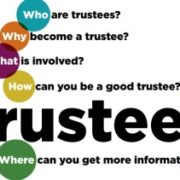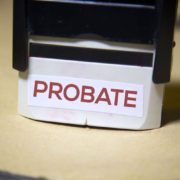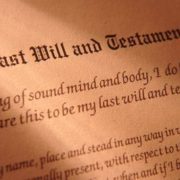Ohio Irrevocable Trusts
What is an Irrevocable Trust?
Irrevocable trusts cannot be changed or terminated during the grantor’s lifetime without all the beneficiaries’ permission or court approval. The grantor relinquishes control over the trust and the assets placed in the trust.
Revocable Trusts Vs. Irrevocable Trusts
Revocable trusts can be changed or terminated during the grantor’s lifetime as long as they are competent. This type of trust is attractive, compared to an irrevocable trust, because you can update your beneficiaries, change which assets are included in the trust, and update how assets will be distributed.
Learn more about the key similarities and differences of revocable and irrevocable trusts here.
Irrevocable Living Trusts Vs. Testamentary Trusts
An irrevocable living trust is created during your lifetime and goes into effect immediately (once properly funded). A testamentary trust is created within your will and goes into effect when you pass. While the living trust avoids probate, the testamentary trust does not.
Why should I set up an Irrevocable Trust?
An irrevocable trust can:
- Protect your assets from creditors and litigation, which might be especially beneficial if you are a business owner or are in a high-profile career
- Protect your access to government benefits and preserve your family’s wealth for future generations
- Help you avoid or reduce estate taxes
- Protect your assets from a nursing home or other long-term care expenses
More Specific Types of Irrevocable Trusts & How They Work
Asset Protection Trusts
The main goal of an asset protection trust is to insulate the grantor’s assets from creditors and/or litigation.
Marital Trusts
A Marital Trust, also known as an A Trust, is established to support a surviving spouse. It helps the surviving spouse to avoid estate taxes when the first spouse passes away and their assets are being transferred.
The surviving spouse is the sole beneficiary of the Marital Trust during the couple’s lifetime. He or she can do what they please with the assets, including withdrawing them, selling them or gifting them. At the second spouse’s death, the trust can be passed to other named beneficiaries such as children or grandchildren.
Most A Trusts are also Qualified Terminable Interest Property (QTIP) Trusts. In this case, the trust is required to pay all income generated by the trust to the surviving spouse annually. In addition, with a QTIP Trust, the grantor maintains control after death. This means that the surviving spouse receives income from the trust, but restrictions are placed on how much can be taken out of the trust, and what the funds are used for.
In many cases, when a spouse sets up an A Trust, they also set up a B Trust, or a Bypass Trust. When the first spouse passes, they can have assets passed to beneficiaries other than the surviving spouse without incurring estate taxes. They transfer the maximum amount of assets allowed by estate tax exemption to beneficiaries before transferring the remainder of the estate into the A Trust.
Together, the Marital Trust (A Trust) and Bypass Trust (B Trust) make up the AB Trust.
Generation-Skipping Trusts
Generation-Skipping trusts are often utilized by grandparents to transfer assets to their grandchildren, while avoiding estate taxes.
Spendthrift Trusts
Spendthrift trusts are often utilized when a beneficiary is young or has a history of being financially irresponsible. In a spendthrift trust, the beneficiaries do not have any direct access to assets. The trustee is able to give the beneficiaries assets and funds as they see fit.
Charitable Trusts
Charitable Trusts are established to benefit a charitable organization. In this type of trust, an organization is appointed trustee. As they invest funds within the trust, they can generate a regular stream of income for the organization. There are two main types of Charitable Trusts:
- Charitable Remainder Trusts (CRT) give a set amount of income to beneficiaries, and the remainder goes to the charitable organization.
- Charitable Lead Trusts (CLT) give a set amount of income to the charitable organization, and the remainder goes to beneficiaries or stays in the trust.
Life Insurance Trusts
The only asset within this trust is an insurance policy. This trust is utilized to avoid estate tax on money that comes out of the policy upon the grantor’s passing.
Grantor-Retained Annuity Trusts (GRAT)
This type of trust is typically utilized in estate planning to minimize taxes on large financial gifts to family members. After assets are placed in the trust, an annuity is paid out to the grantor every year. After the trust has expired and the last annuity payment has been made, the beneficiary receives the remaining assets with minimal tax liability.
Qualified Personal Residence Trusts (QPRT)
A QPRT allows the grantor to remove a personal home from their estate, reducing the amount of gift tax incurred when transferring assets to beneficiaries. The owner of the home is allowed to remain on the property for a period of time with retained interest. The value of the property during the retained interest period is calculated based on IRS applicable federal rates. Once the retained interest period is over, the remaining interest is transferred to the beneficiaries.
How To Set Up An Irrevocable Trust With An Attorney
It’s important to remember that an irrevocable trust is just one part of a comprehensive estate plan.
After it has been determined that an irrevocable trust should be part of your estate plan, an attorney can walk you through these key steps:
- Decide what assets will be placed in your trust. While you might already have an idea of what you’d like to include, your attorney may help you uncover some additional assets that would benefit from being placed in a trust. Assets can range from cash and investments to real estate and other property.
- Choose your beneficiaries. They might include your spouse, your children, grandchildren or other close family members.
- Establish the rules of your trust. For example, will assets be distributed with age requirements or terms for how the assets may be used?
- Determine who will manage the trust.
Once you are confident in these decisions, your estate planning attorney can draft the trust document and begin assisting you with funding the trust.
This blog is for educational purposes only; it is not intended to provide legal advice. If you’re planning for your estate and want to speak with an attorney, call 216-573-3723.










